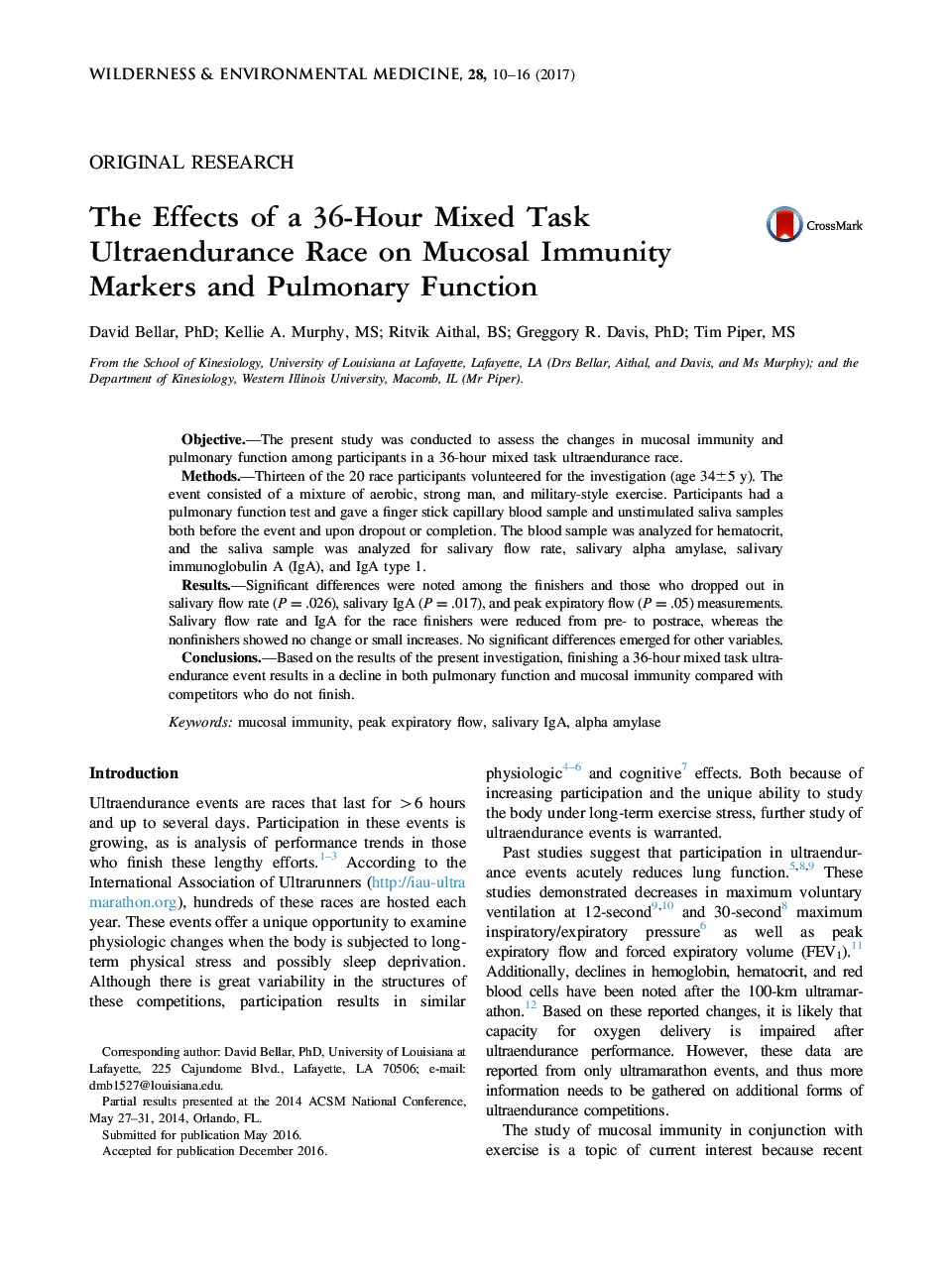| Article ID | Journal | Published Year | Pages | File Type |
|---|---|---|---|---|
| 5563599 | Wilderness & Environmental Medicine | 2017 | 7 Pages |
ObjectiveThe present study was conducted to assess the changes in mucosal immunity and pulmonary function among participants in a 36-hour mixed task ultraendurance race.MethodsThirteen of the 20 race participants volunteered for the investigation (age 34±5 y). The event consisted of a mixture of aerobic, strong man, and military-style exercise. Participants had a pulmonary function test and gave a finger stick capillary blood sample and unstimulated saliva samples both before the event and upon dropout or completion. The blood sample was analyzed for hematocrit, and the saliva sample was analyzed for salivary flow rate, salivary alpha amylase, salivary immunoglobulin A (IgA), and IgA type 1.ResultsSignificant differences were noted among the finishers and those who dropped out in salivary flow rate (P = .026), salivary IgA (P = .017), and peak expiratory flow (P = .05) measurements. Salivary flow rate and IgA for the race finishers were reduced from pre- to postrace, whereas the nonfinishers showed no change or small increases. No significant differences emerged for other variables.ConclusionsBased on the results of the present investigation, finishing a 36-hour mixed task ultra-endurance event results in a decline in both pulmonary function and mucosal immunity compared with competitors who do not finish.
